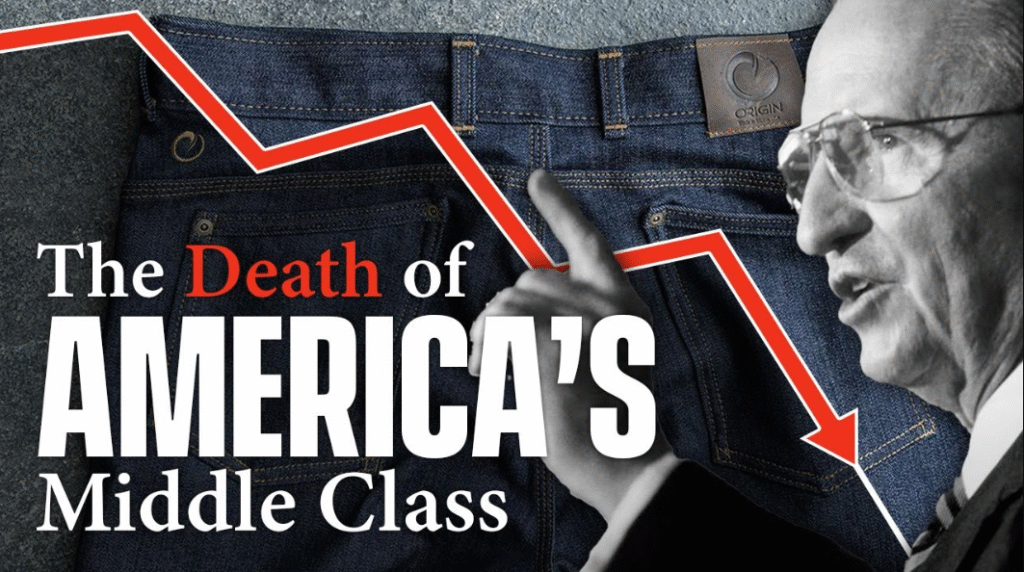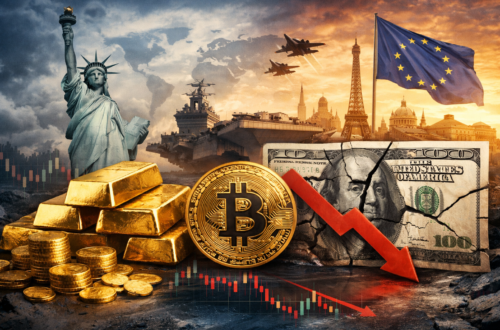
The New Economy of Control: What Happens When the Middle Class Disappears—and Whether We Can Stop It
For generations, the American economy ran on a simple engine: millions of ordinary people bought goods, services, homes, cars, and entertainment, and that consumer base fueled business growth and innovation. But that model is dying—and the most powerful men in tech and finance aren’t trying to revive it. They’re replacing it.
Today, figures like Jeff Bezos, Elon Musk, Bill Gates, Mark Zuckerberg, Larry Fink (BlackRock), and the conglomerates aligned with them are not investing in a future where the middle class thrives—they’re actively designing one where it isn’t necessary.
The obvious question is the one most people are too reasonable to ignore:
If the middle class collapses and the majority can’t afford basic goods, who will buy anything?
The unsettling answer: They don’t need you to. Not in the way you think.
1. The Consumer Is No Longer the Priority
Once, Big Tech made its fortune by selling to the public. Now, the public is secondary. The new business models focus on:
- Government contracts (Amazon Web Services runs cloud systems for federal agencies, including the CIA)
- AI and automation sold to corporations
- Healthcare monopolies, energy grids, satellite infrastructure
- Privatization of public services
Elon Musk isn’t worried about average families buying Teslas—he’s selling Starlink to governments and militaries. Bezos isn’t worried about retail spending—Amazon makes its real money from AWS and logistics control. Zuckerberg shifted from social media to surveillance architecture and AI systems sold to institutions.
The middle class isn’t the customer anymore—governments and mega-corporations are.
2. Your Wallet Doesn’t Matter—Your Data Does
They don’t need your disposable income if they can profit off your existence:
- Every click
- Every search
- Every movement
- Every purchase
- Every message
- Every location ping
You’ve been downgraded from consumer to asset class.
They’re not selling products to you—they’re selling you to systems bigger than you.
3. A Post-Middle-Class Economy
Automation is rapidly replacing the workforce:
- Bezos uses robots in warehouses.
- Musk is betting on AI replacing both labor and management.
- Gates funds agritech that eliminates farmers.
- Zuckerberg builds digital ecosystems designed to replace physical interaction and commerce.
Once, millions of consumers were needed to drive profit. Now, efficiency and control are more profitable than public prosperity.
They are not trying to revive the middle class—they’re planning beyond it.
4. The Real Clients: Governments and Mega-Corps
Follow the money:
- Amazon: Military cloud, pharmaceuticals, drone logistics.
- SpaceX: Federal satellite internet, Pentagon contracts.
- BlackRock & Vanguard: Own stakes in nearly every major corporate and tech entity.
- Microsoft: Defense contracts, AI partnerships with intelligence agencies.
- Meta: Data extraction and behavior manipulation sold to advertisers, campaigns, and agencies.
When governments, banks, and corporate giants are the customers, everyday citizens become irrelevant—except as resources to track, influence, and manage.
5. Dependency as a Business Model
Even if you’re broke, they’ll still profit off you through:
- Debt-based consumption (credit, subscriptions, financing everything)
- Digital currency systems (CBDCs with control features)
- Full-time rental economies (homes, cars, phones—nothing owned)
- Mandatory participation in digital ID and surveillance networks
You’ll “consume” without owning a thing.
Poverty won’t stop profit—it will guarantee dependence.
6. The Endgame: Fewer Owners, More Servants
Their blueprint is clear:
- A small elite owner class
- A thin layer of engineers, managers, and AI specialists
- A dependent population renting everything and owning nothing
Bezos wants to run logistics, retail, data, and cloud infrastructure.
Musk wants to control space, transportation, energy, and AI.
Gates wants his hand in agriculture, healthcare, biotech, and land.
BlackRock wants to own the world’s assets and manage governments through currency and debt.
Zuckerberg wants to own your identity, your communication, and your behavioral profile.
They’re not “innovating” the old America—they’re replacing it.
7. Can This Be Stopped—or Are We Trapped?
Here’s the honest answer:
Are we stuck?
If people stay distracted, divided, and passive—yes. The system will tighten like a noose.
Can it be stopped or slowed?
Only if enough people:
- Stop feeding the machine with blind trust.
- Reject digital dependency when possible.
- Challenge centralized ownership of everything.
- Vote with their money, attention, and labor—not just a ballot.
- Build alternatives: local economies, self-employment, trade networks, community resilience.
Power responds to resistance, competition, and exposure—not silence.
8. Does an Individual Still Have a Chance at a Prosperous Future?
Yes—but not by playing the old game.
To avoid becoming a slave to this new system, a person has to think strategically:
- Own something real (land, skills, assets, tools)
- Avoid lifetime debt traps
- Build income streams that don’t rely on corporate mercy
- Develop trades and services that AI and automation can’t replace
- Strengthen local communities instead of worshiping global systems
- Use tech—but don’t let tech own you
The people who survive and thrive won’t be the ones begging the system for a place—they’ll be the ones who quietly build outside of it while everyone else sleeps.
The Bottom Line
You’re not crazy for seeing the math doesn’t add up. It’s not meant to.
They are not designing a world that needs a strong middle class.
They are designing a world that only needs:
- Their power,
- Their infrastructure,
- And your compliance.
But compliance isn’t guaranteed—not yet.
The question isn’t just “Can we stop it?”
It’s “Will enough people choose not to participate?”
Because the moment compliance ends, control breaks.
And that’s the one variable they can’t code, buy, or automate—human refusal.
Written By Scott Randy Gerber for The Tipping Point Tampa Bay ©2025 All Rights Reserved






